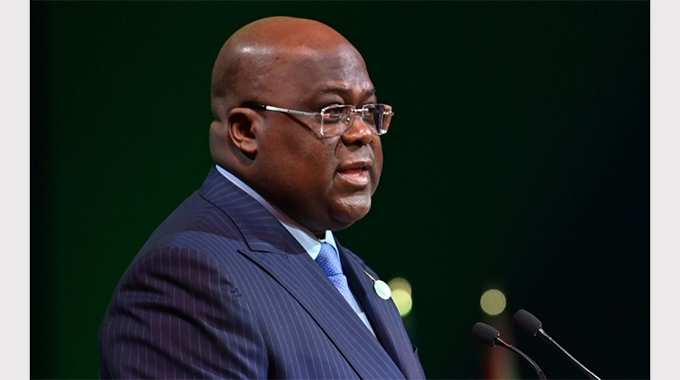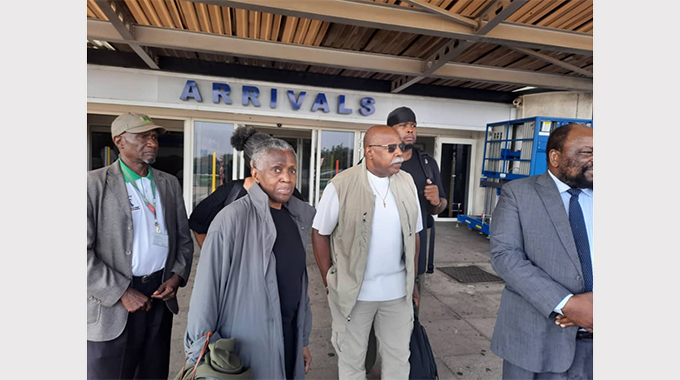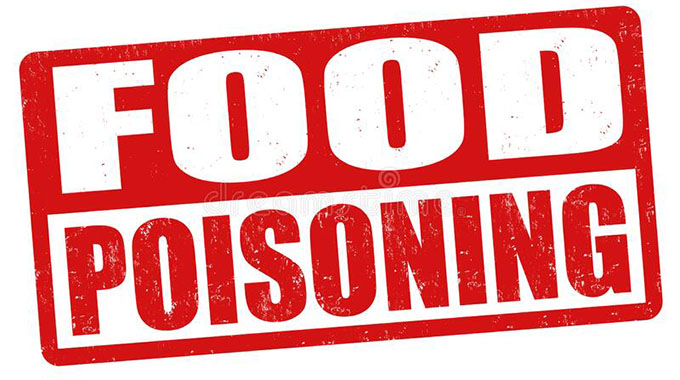SADC castigates West over Zim sanctions

The Southern African Development Community (SADC) on Tuesday accused Western countries of using unilateral sanctions as a covert mechanism to effect regime change in Zimbabwe.
SADC chairman, President Felix Tshisekedi of the Democratic Republic of Congo said this in a statement on the occasion of the regional bloc’s Anti-Sanctions Day on October 25.
Calling for the unconditional and immediate removal of the Western sanctions against Zimbabwe, Tshisekedi said SADC was deeply concerned at false claims that the penalties were of a “targeted nature” aimed only at punishing a few Zimbabweans linked to government.
“Zimbabwe is expected to hold regular national elections in mid-2023. In this context, SADC appeals to those who have imposed sanctions on Zimbabwe to give space to the citizens of the country to exercise their democratic rights and not use sanctions as a covert mechanism to effect regime change,” he said.
“The reality (of the sanctions) is that there is a spill-over and contagion effect on the rest of the country, in particular by imposing a blanket negative perception about Zimbabwe across the world, in particular in the sensitive global financial markets.
“This perception results in the country being unable to attract much needed foreign direct investment, lines of credit, and other financial services that are essential to the socio-economic development of the country. This is more concerning given the need for rapid global recovery from at least two years of the socially and economically crippling COVID-19 pandemic which has now been compounded by a general rise in inflation across the world. Zimbabwe, like most developing countries, is particularly vulnerable to these trends and the unilateral sanctions worsen the plight of her economy.”
The US, along with the European Union and Britain imposed sanctions on Zimbabwe over two decades ago to force the government to abandon its land reforms in which excess white-owned farmland was compulsorily acquired to resettle landless blacks to economically empower them.
The sanctions, targeting both the economy and individual Zimbabweans seen as central to decision-making in government, are estimated to have cost the country up to US$100 billion in lost economic opportunities.
President Tshisekedi said SADC was committed to the spirit of multilateralism, as such, sanctions imposed against any nation in the global family of nations must be made in accordance with international law.
In this context, he said, SADC also supports the Report by Alena Douhan, the UN Special Rapporteur to Zimbabwe on the negative impact of unilateral coercive measures on the enjoyment of human rights, which recommended the lifting of the unilateral sanctions in line with the principles of international law.
“SADC fully supports the conclusion of the Special Rapporteur that sanctions, including secondary sanctions, and different forms of over-compliance by foreign banks and companies have had a significant impact on the population and the Government, exacerbating pre-existing economic and humanitarian challenges,” he said.
Outside SADC, many African countries are also raising their voice against the sanctions on Zimbabwe.
Last month at the UN General Assembly, several African states, in a strong show of continental solidarity, took gloves off and spoke loudly against the unilateral measures.
For example, African Union (AU) chairman and President of Senegal, Macky Sall said: “The AU again calls for the lifting of foreign sanctions against Zimbabwe. These harsh measures continue to be an injustice against an entire people and aggravate their suffering in these times of deep crisis.”-(New Ziana)









Comments